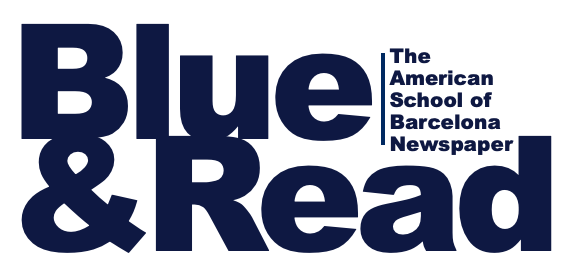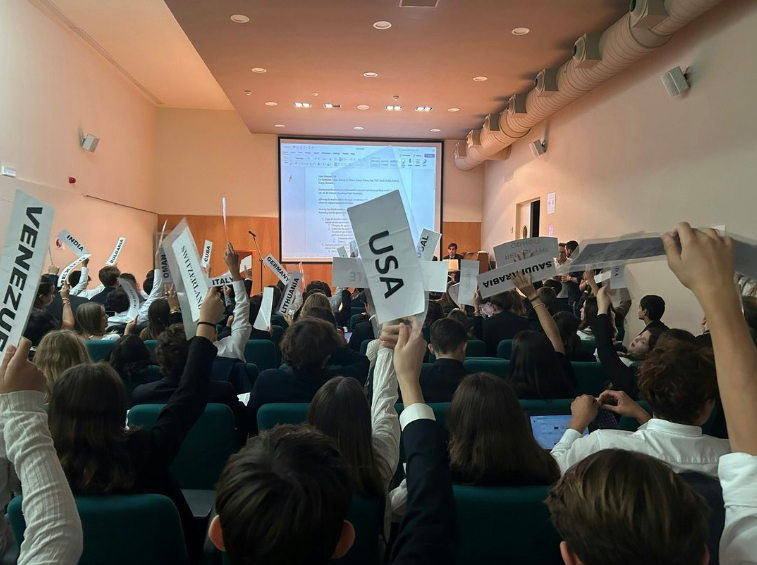What is MUN?
MUN (Model United Nations) is a well recognized educational model of the United Nations, where students take on the roles of delegates representing different countries, in discussions about global issues with the purpose of maintaining international peace and security among all nations. Participants research their assigned country’s policies, debate real-world problems, and collaborate to develop resolutions.
These events help students improve public speaking, critical thinking, negotiation, and leadership skills. MUN conferences encourage teamwork, diplomacy, and a deeper understanding of international relations. MUN conferences follow formal rules and procedures, which guide how delegates speak, debate, and vote.
The sessions begin with opening speeches where delegates introduce their country’s views. This leads to moderated caucuses—meetings of candidates—where structured discussions take place, and unmoderated caucuses, which allow informal negotiations. Delegates must work together to draft and propose resolutions, which outline potential solutions to the discussed problems.
BMUN
On Friday the 25th, a group of students from ASB went to BMUN, which took place at St. Paul’s School. BMUN is designed to be accessible for those with limited experience, allowing beginners to participate as the level among students is not that high. There were 3 schools attending: The American School of Barcelona, St. Paul’s School, and Europa International School. In this conference there were two topics discussed:
1. The question of the spread of disinformation through social media and its effects on minors.
2. The massive migration to the European Mediterranean coasts and refugee management.
Students were given a schedule with lobbying, debate 1 and debate 2.
Lobbying
Lobbying is the process where delegates discuss and negotiate informally with others to build support for their ideas and create alliances before formal debate begins. This phase is crucial because it allows delegates to identify other countries with similar views and interests, enabling them to form blocs that can collaborate on drafting resolutions, building alliances, and negotiating details.
Debate 1: The question of the spread of disinformation through social media and its effects on minors. (150 minutes)
In this debate some points were brought up such as:
- The psychological effects on minors which includes anxiety and depression.
- Privacy concerns for minors.
And solutions such as:
- Educating minors in order for them to be cautious of their technology use.
- Implementing restrictions.
- Policies to strengthen the accountability of social media companies.
As new ideas were coming up more perspectives were considered which contributed to a fair voting in the end.
Debate 2: The massive migration to the European Mediterranean coasts and refugee management. (70 minutes)
In the course of this debate, the moderators touched upon several points, including the following:
- Issues surrounding the migrants’ humanitarian crisis, for example the treacherous journeys through the Mediterranean, which in turn demand attractive, safe, and legal alternatives for those seeking asylum.
- The impact on host countries’ infrastructures, resources, and social services, culminating in the inability of new arrivals to obtain housing, healthcare, and education.
And measures such as:
- Streamlining the procedures and enhancing the prospects of the asylum application process.
- Enhancing the existing international mechanisms that promote a more equitable sharing of refugees’ resettlement between the nations of Europe.
- Tackling the reasons for migrating, for example by investing in the economies and resolving conflicts in the home countries of the migrants.
While new conceptions took shape, so did new ideas, including humanitarian and security perspectives from the host nations, as well as the perspective of the migrants themselves. All of these varying points of view contributed to a fair and just ultimate result in the voting at the end.
In conclusion, BMUN offered a valuable learning experience for students who needed a beginner-friendly conference, encouraging participation and raising awareness on pressing issues such as social media disinformation and migration in Europe.
Bibliography:
United Nations. Model UN Guide. United Nations, www.un.org/en/mun/model-un-guide. Accessed 31 Oct. 2024.
“United Nations.” Wikipedia, 4 Nov. 2024, en.wikipedia.org/wiki/United_Nations. Accessed 31 Oct. 2024.
United Nations. What Is the United Nations? YouTube, 21 Oct. 2019, www.youtube.com/watch?v=WCCjaVjnArI. Accessed 31 Oct. 2024.

